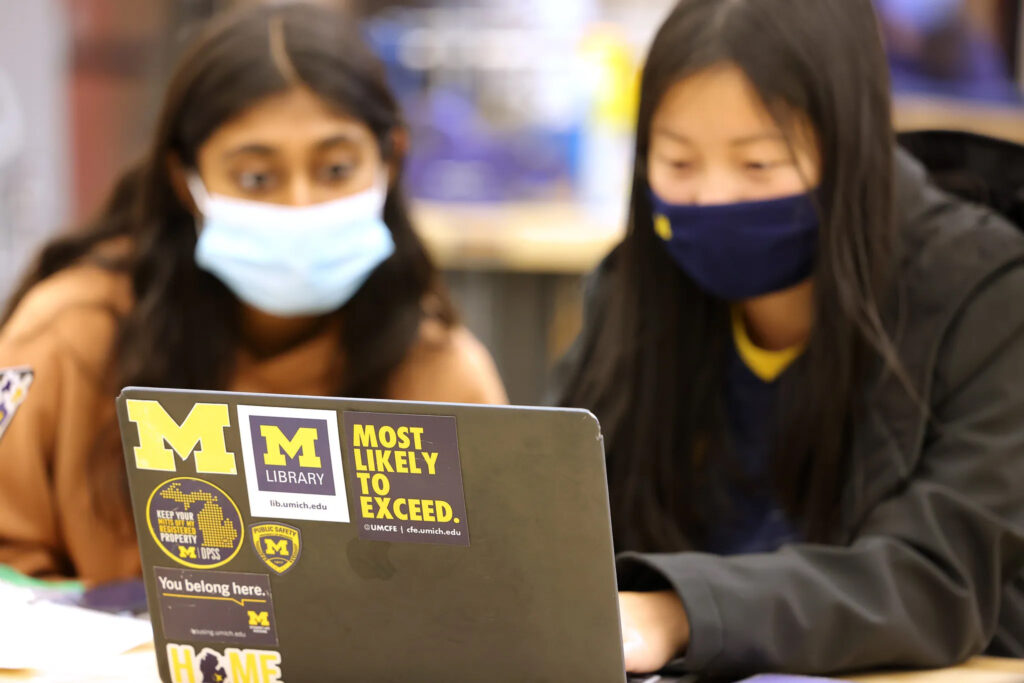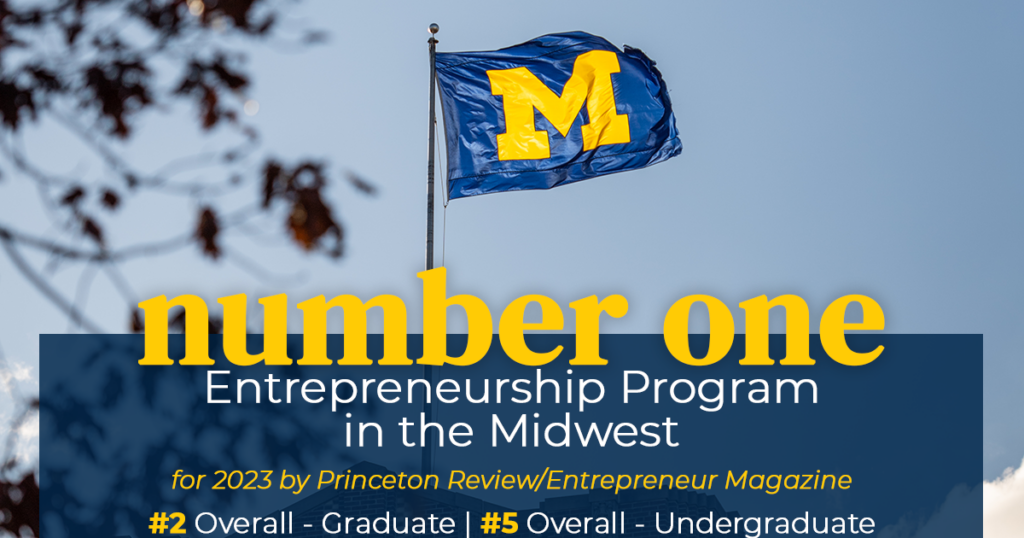
The University of Michigan’s entrepreneurial ecosystem has once again been ranked in the Top 5 globally by Princeton Review and Entrepreneur Magazine. With curricular and co-curricular entrepreneurship offerings contributing to U-M’s #1 ranking in the Midwest region for undergraduate entrepreneurship programs, #5 globally, and at the graduate level, the University of Michigan is also #1 for entrepreneurship programs in the Midwest and #2 globally. 2023 marks our eighth consecutive year with top global rankings.

“The evolution of Entrepreneurship education at the University of Michigan over the past 15 years has taken us from being a niche add-on to the academic experience, to a core offering that truly prepares the Leaders and Best for long-term success in industry, academia, government, and the startup world,” said Kurt Skifstad, Dixon and Carol Doll Executive Director of the Center for Entrepreneurship. “Our immersive, experiential programming leverages practitioners, industry experts, and the Maize and Blue’s passionate and accomplished alumni base to launch the next generation of entrepreneurial leaders, practitioners, and game changers.”
Entrepreneurship programs across the University of Michigan make up a collaborative and robust ecosystem that focuses on transformative experience at both the curricular and co-curricular levels. It also extends beyond the campus to partner organizations including Ann Arbor SPARK.
Offerings throughout this ecosystem have continued to grow as interest increases among students from all disciplines. Through these programs, students are exposed to entrepreneurial ideals and practice them through transdisciplinary teams aimed at exploring dynamic, immersive experiences with the intent to develop and refine skills for both leading and being led in creative, technical, and business collaborations.
Partners in U-M’s ecosystem include the Entrepreneurship Minor, a campus-wide initiative of the Provost’s Office; Michigan Ross Zell Lurie Institute and Business+Impact; the College of Literature, Science and the Arts & optiMize; the College of Engineering’s Center for Entrepreneurship, Center for Socially Engaged Design & Innovation in Action, Multidisciplinary Design Program, Wilson Student Team Project Center, CHEPS: Center for Healthcare Engineering & Patient Safety, GHDI: Global Health Design Initiative, and Tauber Institute for Global Operations; the School of Music, Theatre and Dance EXCEL Lab; the School of Information; Stamps School of Art & Design; ArtsEngin; the School of Education’s CEDER; School of Kinesiology; School of Nursing; and School of Social Work.
Throughout U-M’s diverse ecosystem, 215 faculty members teach over 200 classes that have a focus on entrepreneurship and innovation. These faculty members represent 58 U-M departments and more than 50% have founded or run a business themselves.
The University’s most differentiating aspect is its breadth and accessibility of programs. Some courses are designed for students who are curious about entrepreneurship, other courses and programming are more intensive in order to provide the most innovation-driven students with mentorship and skills training needed to transform their ideas into successes.
More than 5,500 undergraduates, representing 127 different majors across campus, were enrolled in entrepreneurial ecosystem courses during the past year.
The University of Michigan’s Entrepreneurship Minor is the 2nd most declared minor. 100% of the undergrads in this minor have developed an actionable plan with assumption testing to launch a business.
“Engineers play a key role in solving society’s greatest challenges, so it is no coincidence that there are entrepreneurial thinkers and doers in every classroom,” said Alec D. Gallimore, Robert J. Vlasic, Dean of Engineering at the University of Michigan. “Our students are empowered to collaborate across boundaries, draw on a diversity of expertise, and apply the skills they learn to successfully translate their ideas into the world and build a future that elevates all people.”
Funds raised by undergraduate students who graduated in the past five to ten years total more than $1.27B with more than 80% of these ventures still in business.
Overall, U-M gives students the opportunity to apply entrepreneurial thinking in order to carve out creative, stimulating futures that offer economic security and the opportunity to contribute positively to society.